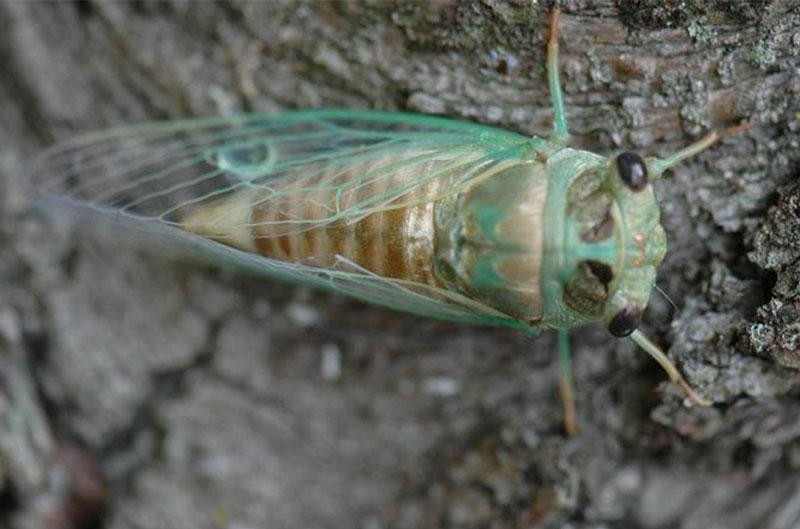
Photo by Brian Kunkel, University of Delaware, Bugwood.org
The Dog Days of...Cicadas?
Written By: Ian Silvester
The fall semester is right around the corner, but summer’s grip is strong, with a
week of hundred-degree days and blazing sun. As you navigate every obscure-yet-shaded
route around campus, you’ll likely hear a certain summer buzz flowing through the
trees as Arkansas insects roughly as long as two quarters, sing their songs.
The loudest of those singers are without a doubt the cicadas. Until spending a summer
on campus, cicadas lived in my childhood memories of family trips to Texas and catching
fireflies in my grandparent’s Little Rock backyard. But as I walked under the campus
maple grove to a chorus of screams, I wondered who else had wondered and why the cicadas
are so, well, loud.
At the University of Arkansas – Fort Smith, more than 80 species of trees inhabit
the 168-acre campus – an official arboretum in its own right. Each tree provides a
home to dozens of these reverberatory insects. The Lyric Cicada, the Scissor Grinder
Cicada, and Superb Dog-Day Cicada, just to name a few, call the River Valley home. However, the oscillating buzzing and ticking song of the cicada does more than just
drown out outdoor conversations.
It’s a love song, albeit one played at the decibel level of a lawnmower, from a creature
thousands of times smaller than the average Bad Boy Mower. Muscles pull membranes,
called tymbals, which rapidly vibrate to create rhythmic calls, and groups of male cicadas synchronize
their calls to attract their future mates. And once a love-connection is made, the
male chirps another serenade.
As I investigated these winged insects, I thought about walking outside during the
summer and wondering to myself, “Is it just me, or are these bugs getting louder?”
The answer is yes – cicada songs grow louder when it gets hotter. The friction created by the vibrating tymbal heats up the cicada, and for their
chirping to reach a possible mate, they must get warmer than the outside temperature.
Talk about the fires of love, am I right?
Thankfully, as fall approaches, both the heat and the virtually constant humming of
these bugs, will taper off.
